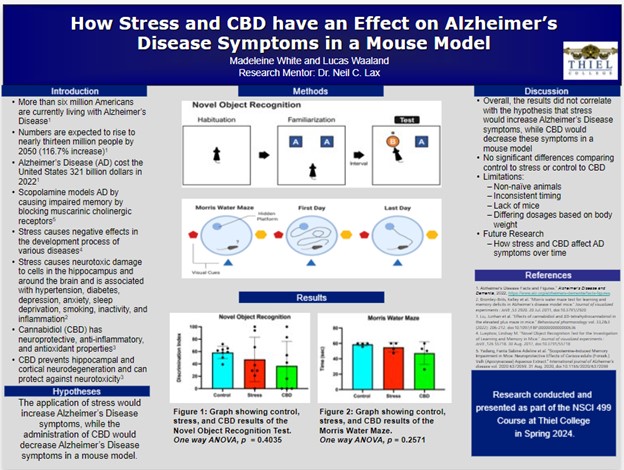Issue 4 (Fall 2024)

Editors-in-Chief
C. Grace Honeycutt and Makenna Oswalt
Editors
Savannah Adams, Alexa Beck, James Cromwell-Young, Sydney Green, Kelly Oros, Maddy Trisket, Colin Schroyer, Madeleine White, and Kaitlynn Wolffe
Faculty Advisor
Dr. Sheila Gross, Assistant Professor of English
Dietrich Honors Institute Director: Dr. Sheila Nowinski, Associate Professor of History
Issue 4 Journal Articles
Sylvia Plath’s Character Esther Greenwood Viewed from a Psychoanalytic Perspective
By Alexa Beck
Hansen, Not Hamlet: The Benefits of Teaching Modern Literature in the Secondary English Classroom
By Muncie Canon
Modern Mythmaking; or, In Defense of the Apology: How Contemporary Authors Reclaim and Empower Mythomorphs in Literary History
By Roxanne Cianci
Positively Stressed!: An Approach to Encouraging a Healthy Stress Mindset and Strengthening Positive Coping Mechanisms
By Laci Dezern and George Tice
The Girl on Fire: A Discussion on the Oppression of Child Pawns
By Laci Dezern
The Leader’s Journey: Consequence, Regret, and Reflection
By Alexander Henry
Supernatural in Shakespeare: The Use of Ghosts in Shakespeare’s Macbeth, Hamlet, and Richard III
By C. Grace Honeycutt
Brothers of a Lost Tongue: Comparing Translations of Franz Kafka’s In the Penal Colony
By Bradley Molnar
Fiery Feminism: Disney’s Evolution from The Little Mermaid to Brave
By Makenna Oswalt
Wake Up, Puppet Boy: Defining Boyhood Through Pinocchio
By Colin Schroyer
Hidden in Plain Sight: Disability Represented in Literature
By Kaitlynn Wolffe
Issue 4 Research Posters
The Association Between Parental Support, Well-Being, and Feelings Towards Parenting
By James Cromwell-Young
Abstract
This study examined two main research questions. The first question was “Is there an association between parental well-being and their feelings about parenting?” The second question was “Is there an association between the strength of parental support systems a parent has and their feelings about parenting?” These research questions were answered using secondary data analysis of Wave IV of the National Longitudinal Study of Adolescent to Adult Health dataset. Data was obtained from a nationally representative sample of 5,114 individuals living in all 50 US states in 2008. A self-administered survey was utilized to collect the data. For this study’s purposes, only parents were used, making the total 2,579 respondents. The results showed that there was a significant negative relationship between respondents’ poor well-being and their feelings about parenting; however, the correlation was weak. There was also a significant relationship between a parent’s support from their parents and their feelings toward the respondent’s own parenting. Further, a moderation analysis showed that gender had no effect on the association between a respondent’s closeness to their father and their feelings about parenting. The results of this study suggest that parental well-being and the strength of support systems a parent has are related to how well they feel in their role as a parent. However, more research should be done to analyze the relationship between parental well-being and parental support, to understand if all three variables are interconnected. Additional research should also be done to explore different parental support systems and their effect on well-being and attitude toward parenting.
James Cromwell Young ’26 is a Psychology and Sociology double major from Virginia Beach, VA.
The Association Between Birth Control and Feelings of Control
By Brooke Griffith
Abstract
This study examined two main research questions. The first question was “Is there an association between hormonal birth control and feelings of control over their emotions?” The second question was “Is there an association between birth control and women’s feelings of control over their/choices?” These research questions were answered using secondary data analysis of Wave IV of the National Longitudinal Study of Adolescent to Adult Health dataset. Data was obtained from a nationally representative sample of 5, 114 individuals living in all 50 US states in 2008. A self-administered survey was utilized to collect the data. The results showed that there was a significant relationship between hormonal birth control pills and positive feelings of control. There was a significant relationship between cigarettes smoked per day and physical activity, with less activity reported by individuals who smoked that anxiety had no effect on the association between cigarette smoking and blood pressure. The results of this study suggest that smoking habits are related to other poor health behaviors, but more research should be conducted to better understand how mental health issues might play a role.
Brooke Griffith ’26 is a Public Policy and Psychological double major and Criminal Justice and Legal studies minor from Chicora, PA.
The Association Between Paternal Incarceration, Delinquent Behavior, and Depression in Adults in the United States
By Lucas Waaland
Abstract
This study examined two main research questions. The first question was “Is there an association between paternal incarceration and diagnosed depression?” The second question was “Is diagnosed depression associated deviance outcomes?” These research questions were answered using secondary data analysis of Wave IV of the National Longitudinal Study of Adolescent to Adult Health dataset. Data was obtained from a nationally representative sample of 5,114 individuals living in all 50 US states in 2008. A self-administered survey was utilized to collect the data. The results showed that there was a significant relationship between paternal incarceration and depression diagnoses. There was also a significant relationship between a depression diagnosis and delinquent behaviors. However, in a moderation analysis, a depression diagnosis was determined to not be a moderating variable between paternal incarceration and deviant behavior. The results of this study suggest that paternal incarceration is significantly linked with both depression diagnoses and delinquent behaviors. More research should be completed to determine a stronger mediating link from paternal incarceration to delinquent behaviors.
Lucas Waaland ’24 graduated with a BS in Neuroscience and is from Columbus, Ohio.

How Stress and CBD have an Effect on Alzheimer’s Disease Symptoms in a Mouse Model
By Madeleine White and Lucas Waaland
Alzheimer’s Disease is one of the most prevalent neurological diseases in the world, affecting about 55 million people worldwide. This disease deteriorates the brain, causing intense memory loss. There is currently no cure for Alzheimer’s Disease. This research project aimed to strengthen the evidence showing the effects of stress and CBD on Alzheimer’s Disease symptoms. A group of eight male C57BI6J mice were used throughout the course of the research. Mice were injected with Scopolamine to induce Alzheimer’s Disease symptoms and were injected with CBD or experienced stress to diminish or enhance the symptoms, respectively. The effect of Alzheimer’s was determined by using the Novel Object Recognition Test and the Morris Water Maze Test. The Novel Object Recognition Test was used to measure working memory by recording the amount of time each mouse spent with a novel object after observing two similar objects. The Morris Water Maze Test was used to measure spatial memory by recording the amount of time it took for each mouse to find a platform in a pool of cloudy water based on visual features around the room. Based on these tests, it was hypothesized that the effects of stress would increase Alzheimer’s Disease symptoms while the administration of CBD would diminish them.
Madeleine White ’25 is a Neuroscience and Health Systems double major from Pittsburgh, PA.
Lucas Waaland ’24 graduated with a BS in Neuroscience and is from Columbus, Ohio.

